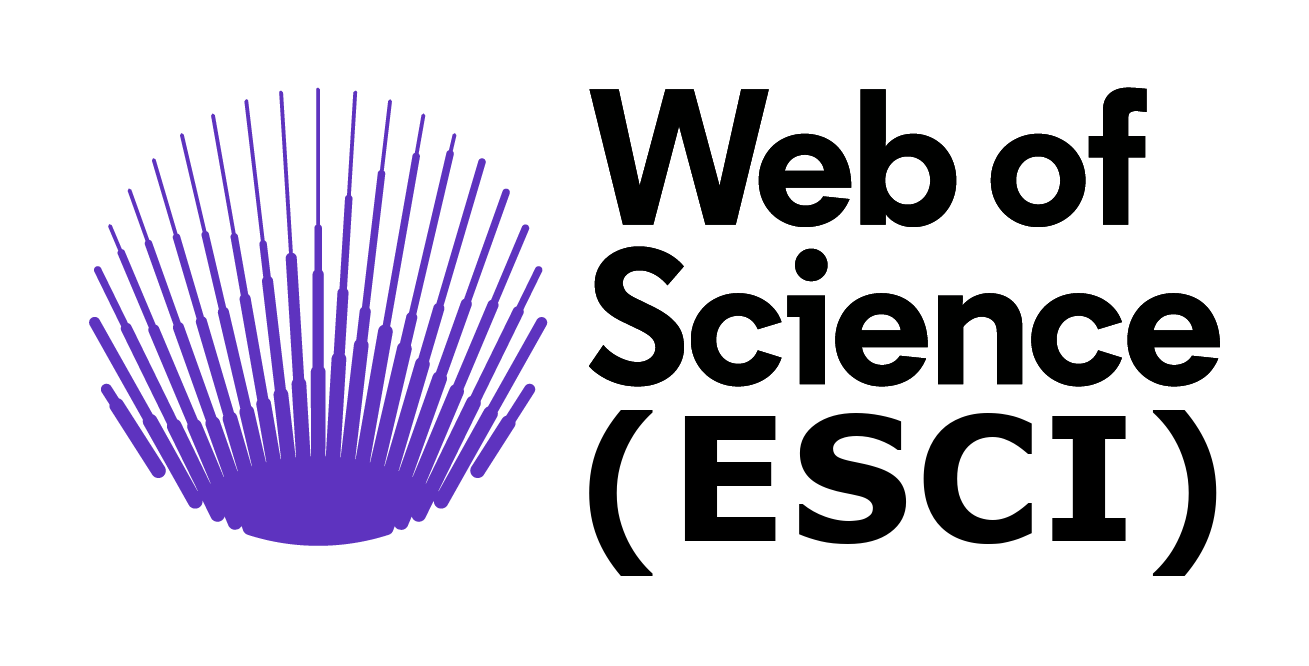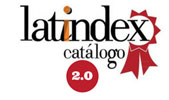GAST: A generic AST representation for language-independent source code analysis
DOI:
https://doi.org/10.29019/enfoqueute.957Palabras clave:
Transformación de código, Árbol de sintaxis abstracta genérica, Lenguaje genérico, Análisis de códigoResumen
Las organizaciones usan varios lenguajes de programación para desarrollar sus sistemas. Estas utilizan las características mas apropiadas de cada lenguaje para un dominio determinado. Por su parte los programadores deben tener dominio de diferentes lenguajes para hacer frente a la creciente complejidad del desarrollo y mantenimiento del software. Así que necesitan herramientas que les ayuden a realizar esas tareas. Esas herramientas deben ser capaces de analizar los programas para identificar las relaciones entre sus elementos internos, ayudar a descubrir patrones y calcular métricas de calidad. Sin embargo, la mayoría tienen soporte limitado para analizar diversos lenguajes de programación y altos costos de adquisición. Por lo que existe la necesidad de contar con nuevos métodos para analizar el código escrito en múltiples lenguajes de programación. Este artículo describe el diseño de un método para transformar automáticamente la sintaxis de varios lenguajes de programación en un lenguaje universal con una sintaxis genérica. La función del lenguaje genérico es encapsular las especificidades de cada lenguaje concreto, de manera que se facilite el análisis de programas en una sola sintaxis de programación y no en múltiples sintaxis. La ventaja de este enfoque es que solo se requiere un motor de análisis, no varios analizadores de código, para estudiar los programas.
Descargas
Citas
S. Nanz and C. A. Furia, “A Comparative Study of Programming Languages in Rosetta Code,” p. 778–788, 2015, https://doi.org/10.1109/ICSE.2015.90.
Z. Mushtaq, G. Rasool, and B. Shehzad, “Multilingual Source Code Analysis: A Systematic Literature Review,” IEEE Access, vol. 5, pp. 11 307–11 336, 2017, https://doi.org/10.1109/ACCESS.2017.2710421.
M. D’Ambros, H. Gall, M. Lanza, and M. Pinzger, “Analyzing software repositories to understand software evolution,” pp. 37–67, 2008, ISBN: 978-3-540-76440-3.
Sonar, “Sonarqube,” Electronic, Jun 2023. [Online]. Available: https://www.sonarsource.com.
O. Nierstrasz, S. Ducasse, and T. Gˇırba, “The Story of Moose: an Agile Reengineering Environment,” ACM SIGSOFT Software Engineering Notes, vol. 30, no. 5, pp. 1–10, 2005, https://doi.org/10.1145/1095430.1081707.
M. Papadakis, M. Delamaro, and Y. Le Traon, “Mitigating the Effects of Equivalent Mutants with Mutant Classification Strategies,” Science of Computer Programming, vol. 95, pp. 298–319, 2014, https://doi.org/10.1016/j.scico.2014.05.012.
F. A. Bastidas and M. Pe´rez, “A Systematic Review on Transpiler Usage for Transaction-Oriented Applications,” in 2018 IEEE Third Ecuador Technical Chapters Meeting (ETCM). IEEE, 2018, pp. 1–6, https://doi.org/10.1109/ETCM.2018.8580312.
D. L. Whitfield and M. L. Soffa, “An Approach for Exploring Code Improving Transformations,” ACM Transactions on Programming Languages Systems, vol. 19, no. 6, p. 1053–1084, Nov 1997, https://doi.org/10.1145/267959.267960.
K. An, N. Meng, and E. Tilevich, “Automatic Inference of Java-to-Swift Translation Rules for Porting Mobile Applications,” in Proceedings of the 5th International Conference on Mobile Software Engineering and Systems, 2018, pp. 180–190, https://doi.org/10.1145/3197231.
T. Dirgahayu, S. N. Huda, Z. Zukhri, and C. I. Ratnasari, “Automatic Translation from Pseudocode to Source Code: A Conceptual-Metamodel Approach,” in 2017 IEEE International Conference on Cybernetics and Computational Intelligence (CyberneticsCom). IEEE, 2017, pp. 122–128, https://doi.org/10.1109/CYBERNETICSCOM.2017.8311696.
N. Shetty, N. Saldanha, and M. Thippeswamy, “CRUST: AC/C++ to Rust Transpiler Using a “Nano-parser Methodology” to Avoid C/C++ Safety Issues in Legacy Code,” pp. 241–250, 2019, ISBN:978-981-16-1344-9.
M. Drissi, O. Watkins, A. Khant, V. Ojha, P. Sandoval, R. Segev, E. Weiner, and R. Keller, “Program Language Translation Using a Grammar-Driven Tree-to-Tree Model,” arXiv preprint arXiv:1807.01784, 2018, https://doi.org/10.48550/arXiv.1807.01784.
“Tree-to-Tree Neural Networks for Program Translation, author=Chen, Xinyun and Liu, Chang and Song, Dawn, journal=arXiv preprint arXiv:1802.03691, year=2018, note=”https://doi.org/10.48550/arxiv.1802.03691”.
M.-A. Lachaux, B. Roziere, L. Chanussot, and G. Lample, “Unsupervised Translation of Programming Languages,” arXiv preprint arXiv:2006.03511, 2020, https://doi.org/10.48550/arXiv.2006.03511.
P. Yin and G. Neubig, “A Syntactic Neural Model for General-Purpose Code Generation,” arXiv preprint arXiv:1704.01696, 2017, https://doi.org/10.48550/arXiv.1704.01696.
M. Rabinovich, M. Stern, and D. Klein, “Abstract Syntax Networks for Code Generation and Semantic Parsing,” arXiv preprint arXiv:1704.07535, 2017, https://doi.org/10.48550/arXiv.1704.07535.
Y. Oda, H. Fudaba, G. Neubig, H. Hata, S. Sakti, T. Toda, and S. Nakamura, “Learning to Generate Pseudo-Code from Source Code Using Statistical Machine Translation,” in 2015 30th IEEE/ACM International Conference on Automated Software Engineering (ASE), 2015, pp. 574–584, https://doi.org/10.1109/ASE.2015.36.
A. T. Nguyen, T. T. Nguyen, and T. N. Nguyen, “Migrating Code with Statistical Machine Translation,” in Companion Proceedings of the 36th International Conference on Software Engineering, 2014, pp. 544–547, https://doi.org/10.1145/2591062.2591072.
OMG. (2016) About the Meta Object Facility Specification, Version 2.5.1. [Online]. Available: https://www.omg.org/spec/MOF.
T. Parr, The Definitive ANTLR 4 Reference. Pragmatic Bookshelf, 2013, ISBN=978-1-934356-99-9.
Mapstruct. (2018, Jul) Mapstruct Java Bean. [Online]. Available: https://maven.apache.org/.
W. Wang, G. Li, B. Ma, X. Xia, and Z. Jin, “Detecting Code Clones with Graph Neural Network and Flow-Augmented Abstract Syntax Tree,” in 2020 IEEE 27th International Conference on Software Analysis, Evolution and Reengineering (SANER). IEEE, 2020, pp. 261–271, https://doi.org/10.1109/SANER48275.2020.9054857.
J. Navas-Sú and A. González-Torres, “A Method to Extract Indirect Coupling and Measure its Complexity,” in 2018 International Conference on Information Systems and Computer Science (INCISCOS). IEEE, 2018, pp. 186–192, https://doi.org/10.1109/INCISCOS.2018.00034.
Descargas
Publicado
Cómo citar
Número
Sección
Licencia
Derechos de autor 2023 Los Autores

Esta obra está bajo una licencia Creative Commons Reconocimiento 3.0 Unported.
Los artículos e investigaciones publicadas por la Universidad UTE, se realizan en régimen de Acceso Abierto [Open Access] en formato electrónico. Esto significa que todo el contenido está disponible de forma gratuita sin costo para el usuario o su institución. Los usuarios pueden leer, descargar, copiar, distribuir, imprimir, buscar o enlazar los textos completos de los artículos, o usarlos para cualquier otro propósito legal, sin necesidad de pedir permiso previo al editor o al autor. Esto está de acuerdo con la definición de acceso abierto de la Iniciativa de Acceso Abierto de Budapest (BOAI). Al enviar un artículo a cualquiera de las revistas científicas de la Universidad UTE, el o los autores aceptan estas condiciones.
La UTE aplica la licencia Creative Commons Attribution (CC-BY) a los artículos de sus revistas científicas. En virtud de esta licencia de acceso abierto, como autor usted acuerda que cualquier persona puede reutilizar su artículo en su totalidad o en parte para cualquier propósito, de forma gratuita, incluso para fines comerciales. Cualquiera puede copiar, distribuir o reutilizar el contenido siempre y cuando el autor y la fuente original estén correctamente citados. Esto facilita la libertad de reutilización y también asegura que el contenido pueda ser extraído sin barreras para necesidades de investigación.
Esta obra está bajo una Creative Commons Attribution 3.0 International (CC BY 3.0).
Además, la Revista Enfoque UTE garantiza y declara que los autores conservan siempre todos los derechos de autor y todos los derechos de publicación sin restricciones [© Los Autores]. El reconocimiento (BY) permite cualquier explotación de la obra, incluyendo una finalidad comercial, así como la creación de obras derivadas, la distribución de las cuales también está permitida sin ninguna restricción.























 Enfoque UTE - Facultad de Ciencias de la Ingeniería e Industrias - Universidad UTE
Enfoque UTE - Facultad de Ciencias de la Ingeniería e Industrias - Universidad UTE